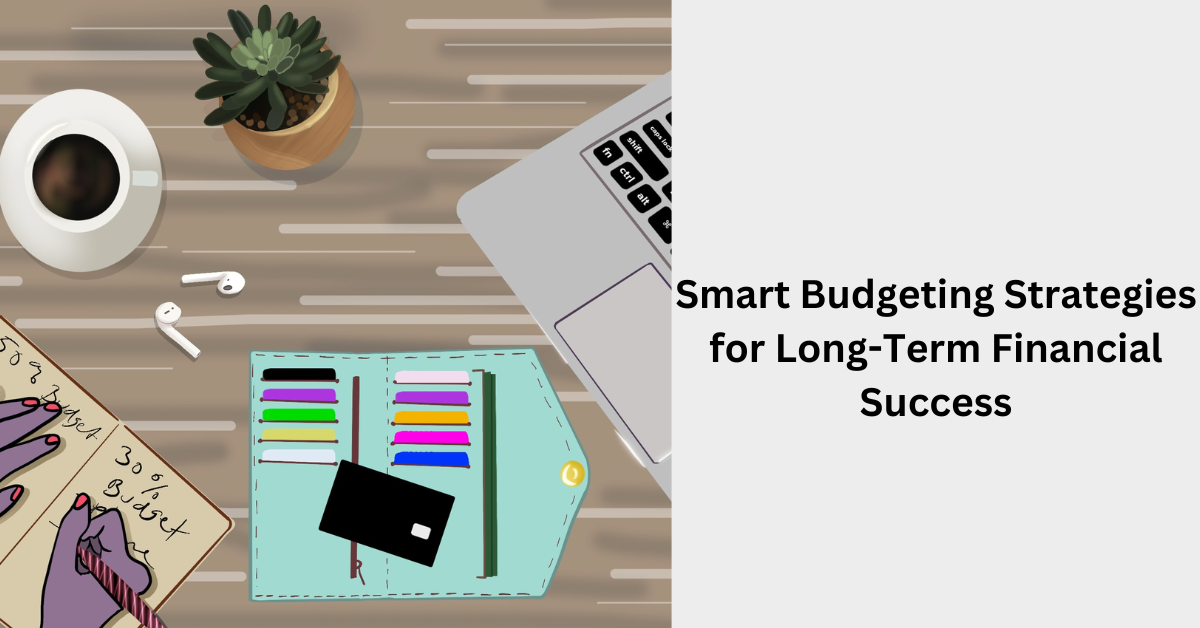Achieving long-term financial success requires more than just earning a steady income; it involves cultivating smart budgeting habits that pave the way for financial stability and growth.
This article explores key strategies for effective budgeting, empowering individuals to make informed financial decisions and build a solid foundation for the future.
Table of Contents
1. Create a Comprehensive Budget:
Begin by crafting a detailed budget that encompasses all aspects of your financial life. Categorize your expenses, including necessities like housing, utilities, groceries, and transportation, as well as discretionary spending on entertainment and non-essential items. A comprehensive budget serves as a roadmap for managing your money effectively.
2. Differentiate Between Needs and Wants:
Distinguish between essential needs and discretionary wants. While it’s crucial to meet basic necessities, identifying and curbing unnecessary spending on non-essential items can free up funds for savings and investments. Prioritize spending on what truly adds value to your life and long-term goals.
3. Establish an Emergency Fund:
Building an emergency fund is a fundamental step in financial planning. Aim to set aside three to six months’ worth of living expenses in a readily accessible account. This fund serves as a financial safety net, providing peace of mind and protection against unexpected expenses or disruptions in income.
4. Prioritize High-Interest Debt Repayment:
If you have outstanding high-interest debt, such as credit card balances, prioritize repayment. Allocate extra funds to aggressively pay down high-interest debts, as the interest accrued can significantly impede your long-term financial progress. Once high-interest debts are under control, redirect those funds towards savings and investments.
5. Automate Savings Contributions:
Automate your savings contributions to ensure consistency and discipline in building your financial reserves. Set up automatic transfers to a dedicated savings or investment account each month. This proactive approach eliminates the temptation to spend money earmarked for future goals and reinforces a savings mindset.
6. Invest for the Long Term:
Consider long-term investments as part of your financial strategy. Diversify your portfolio with a mix of stocks, bonds, and other investment vehicles aligned with your risk tolerance and financial goals. Investing for the long term allows your money to grow and compound over time, contributing to your overall financial success.
7. Regularly Review and Adjust Your Budget:
Financial circumstances evolve, and so should your budget. Regularly review your budget to account for changes in income, expenses, or financial goals. Adjust your budget accordingly to stay aligned with your overarching financial plan and ensure continued progress toward your objectives.
8. Negotiate and Shop Smart:
Seek opportunities to reduce expenses by negotiating bills, exploring discounts, and making informed purchasing decisions. Whether it’s negotiating a lower interest rate on loans, bundling services for a discount, or comparison shopping for major purchases, being proactive in managing your expenses contributes to a more efficient budget.
9. Cultivate Financial Discipline:
Exercise discipline in financial decision-making. Avoid impulsive purchases and carefully consider the long-term impact of your financial choices. Developing financial discipline is essential for sticking to your budget, building savings, and achieving long-term financial success.
10. Educate Yourself About Personal Finance:
Invest time in educating yourself about personal finance. Understand the basics of budgeting, investing, and financial planning. Equip yourself with the knowledge needed to make informed decisions about your money. Utilize reputable resources, attend financial workshops, and consider seeking guidance from financial professionals when necessary.
Conclusion:
Smart budgeting is the cornerstone of long-term financial success. By creating a comprehensive budget, differentiating between needs and wants, establishing an emergency fund, prioritizing debt repayment, automating savings, investing for the long term, and practicing financial discipline, individuals can build a strong financial foundation.
Regularly reviewing and adjusting the budget, negotiating expenses, and staying educated about personal finance further contribute to a robust financial strategy. Implementing these smart budgeting strategies empowers individuals to navigate their financial journey with confidence and build a secure future.
